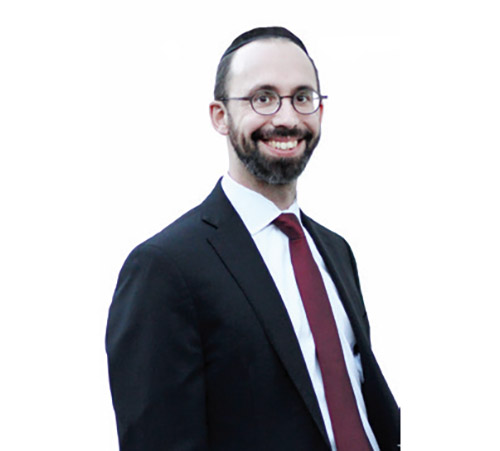
Before one Pesach during World War II, the Bluzhever Rebbe was in a concentration camp and managed to salvage some flour to covertly bake a few matzos. Since there wasn’t enough for everyone who wanted, the Rebbe determined that the adults, not the children, should divide the matzos since they had a mitzvah to eat them.
But a modest widow approached the Bluzhever Rebbe. She apologized for challenging the Rebbe, but said, “If only the adults get to leave this death camp, we will remember what matzos are. But if the children get to leave and not us, they will not even remember what matzos are! They must get them to remember and make a permanent impression on their souls.”
The Rebbe was truly impressed with her reasoning and changed his ruling. The children would divide the matzos! In fact, he was so moved by her words that after the war, the Bluzhever Rebbe married this widow. He said her view of chinuch was powerful and full of truth. [From Rabbi Paysach Krohn]
This story depicts a key component of Seder night: the importance of transmitting to our children our emunah (faith) and gratitude to Hashem. This is expressed in the paragraph “Arami Oved Avi,” Lavan (the Aramean) destroyed my father. Why are we bringing Lavan into the story of leaving Egypt? Lavan lived many generations before the Jews went down to Egypt. What does he have to do with our story?
Rav Kanerick explains that the answer lies in the contrast between Pharaoh, who only sought to kill the male babies, and Lavan, who intended to uproot us all. Let’s first explain the meaning of “tried to uproot all.” One might understand it to mean that Lavan intended to murder his own daughters and grandchildren when Yaakov secretly left him, but Lavan was a swindler, not a murderer. The answer lies in the exchange of words Lavan had with Yaakov when he caught up with him. Yaakov said he earned every dollar honestly despite all Lavan’s attempts to cheat and swindle him. Lavan responded with a shocking statement, asserting, “Your sons are my sons, your daughters are my daughters and everything you have belongs to me!” Lavan reminded Yaakov that he arrived in Aram as a penniless Torah scholar. Lavan was saying, “I took you in and taught you the family business. You were successful because of me. I let you marry my daughters. Your children grew up in my house. I raised them. I am their father.”
That is Arami Oved Avi: Lavan tried to eradicate the fact that Yaakov was the father of his family. This has deep connotations, since av—father—means the one who raises and influences. Yaakov was the father of the 12 tribes. Lavan attempted to become their surrogate father and undermine all of Yaakov’s chinuch of his children by influencing them and training them in idol worship and deceit.
Lavan was unsuccessful. Yaakov’s sons did not absorb his deceitful ways. But why is this critical to note at the beginning of the story of Yetzias Mitzrayim? Because it was a weakness in this area of the child/parent relationship that brought us down to Mitzrayim. Yosef’s brothers had made a decision that Yosef deserved to be sold as a slave, disregarding the pain this caused to their father Yaakov.
This message is clear in the words Yosef said to his brothers when he revealed that he was not really an Egyptian, but rather their long-lost brother. “I am Yosef. Is my father still alive?” Yosef was asking them if their father was now alive within them. Had they repaired their allegiance to their father, Yaakov?
Seder night is when parents and grandparents transmit emunah to their children/grandchildren. If we want to accomplish this transmission during the Seder, we need to focus on the concept of “father.”
A student of mine told me his wife grew up in Ukraine with almost no knowledge of Torah or mitzvos. But she had a vivid childhood memory emblazoned in her heart: going to her grandparents’ house on Pesach and seeing a table covered with a white tablecloth, bearing matzah and wine, and her grandfather wearing a long white cloak. This powerful image is still with her each Pesach as she sits at her own Seder.
Pesach is a time when families get together, with parents and grandparents engaging with their children. Children receive their timeless lessons, and parents/grandparents tailor their messages to the children, who look to them for answers and direction.
May Hashem help us recognize and admire the good in our parents, as they are the link in the chain of emunah that we pass on to our own children.
By Rabbi Baruch Bodenheim
Rabbi Baruch Bodenheim is the associate rosh yeshiva of Passaic Torah Institute (PTI)/Yeshiva Ner Boruch. PTI has attracted people from all over northern New Jersey, including Teaneck, Bergenfield, Paramus, Rockaway and Fair Lawn. He initiated and continues to lead a multi-level Gemara learning program. Recently he has spread out beyond PTI to begin a weekly beis midrash program with in-depth chavrusa learning in Livingston and Springfield. This year he joined Heichal Hatorah in Teaneck as a Gemara iyun rebbe. His email is rb@ptiweb.org.









